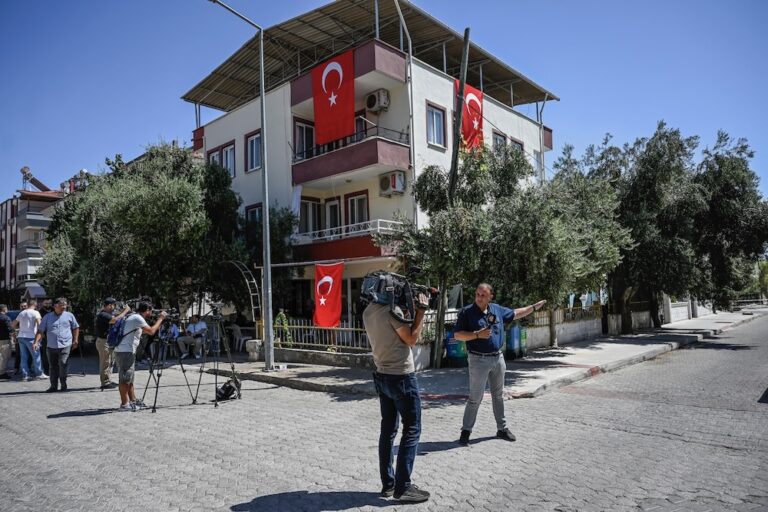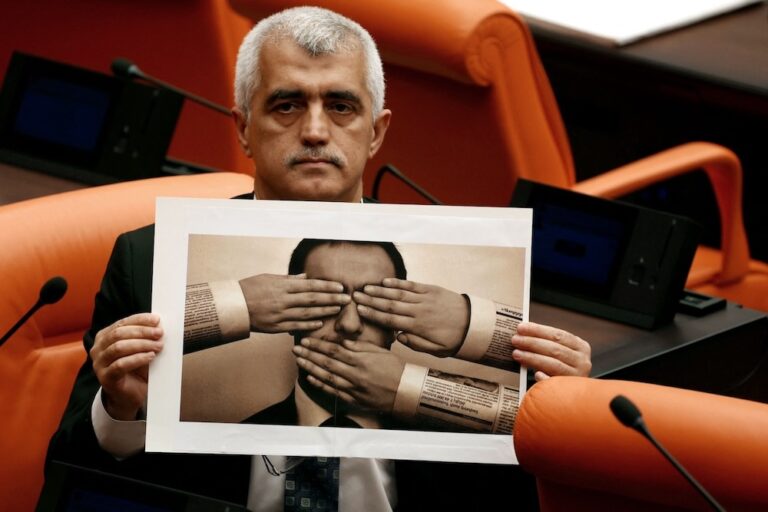(WiPC/IFEX) – The acquittal on 19 December 2006 of author Ipek Calislar, who was accused of insulting the memory of Kemal Atatürk, the founder and first President of the Turkish Republic, in her biography of his first wife, is warmly welcomed by International PEN. PEN remains concerned that other writers and journalists remain on trial […]
(WiPC/IFEX) – The acquittal on 19 December 2006 of author Ipek Calislar, who was accused of insulting the memory of Kemal Atatürk, the founder and first President of the Turkish Republic, in her biography of his first wife, is warmly welcomed by International PEN. PEN remains concerned that other writers and journalists remain on trial in Turkey on charges of insult despite suggestions that there will be legislative changes towards improving the protection of the right to freedom of expression.
Ipek Calislar was tried for her best selling biography of Atatürk’s first wife, Latife Hanim, under Article 5816 of the Penal Code for “insult to the memory of Ataturk” in a passage that described the founder of the Turkish Republic escaping a life threatening situation in the guise of a woman.
Another person accused of insult to be acquitted in recent weeks was publisher Fatih Tas, who was cleared at a 29 November trial for having “insulted Turkishness” by publishing a Turkish translation of American academic John Tirman’s book “The Spoils of War”. However there was not such good news for others who are also on trial, among them those who have endured many court hearings over a period of years. Among them is Ragip Zarakolu, a publisher who has been on trial since 2004 for two books (being tried in two separate cases) that refer to the massacre of Armenians in Turkey at the turn of the last century, and who learned on 14 December that his case would drag on at least another three months with the next hearings set for 15 March 2007 (see IFEX alerts of 4 May and 15 February 2006, 22 and 18 November, 19 September and 4 January 2005, and others).
Another who is facing the prospect of many more months on trial is Hrant Dink, editor of the Armenian language newspaper “Agos”. He has two trials against him: one launched in July 2006 on charges of “insulting Turkishness” under Article 301 for writing an article critical of the very law under which he is being tried, which will continue on 22 March. The other, under Article 288 of the Penal Code for “attempting to influence a fair trial” for an article published in his newspaper in October 2005 commenting on an earlier conviction, also under Article 301, for which he was subsequently sentenced to a six month suspended prison sentence. The next hearing will be on 18 April 2007.
International PEN is currently monitoring over 80 cases of writers and journalists on trial in Turkey, 20 of whom are charged with insult.
Hopes that Article 301 of the Penal Code will be repealed or amended as part of the conditions for the continuing discussions on Turkey’s application for membership of the European Union have not yet been met. Changes to or removal of this article were among a number of conditions that the European Commission recommended to the European Council when it met on 15 December to decide on how it would proceed with the application. The focus was, however, on Turkey’s refusal to open its ports to traffic from Cyprus until the EU has lifted restrictions on the Turkish Cypriot community. As a result, discussions on Turkey’s entry were slowed down. Lawyers and human rights activists in Turkey continue to call for changes to Article 301 of the Penal Code.
International PEN welcomes the acquittal of Ipek Calislar and Fatih Tas in recent days, yet remains concerned that a large number of other writers and journalists are still before the courts on charges of insult. It considers the laws under which these trials are being held to be in direct violation of the right to freedom of expression and urges that the promised review of these laws be undertaken as a matter of urgency. It believes that the repeal of Article 301 that has led to many prosecutions since it was put in place in 2005 would lead to significant improvements towards Turkey’s adherence to the international standards of human rights to which it is committed, notably the International Covenant on Civil and Political Rights and the European Convention on Human Rights.


